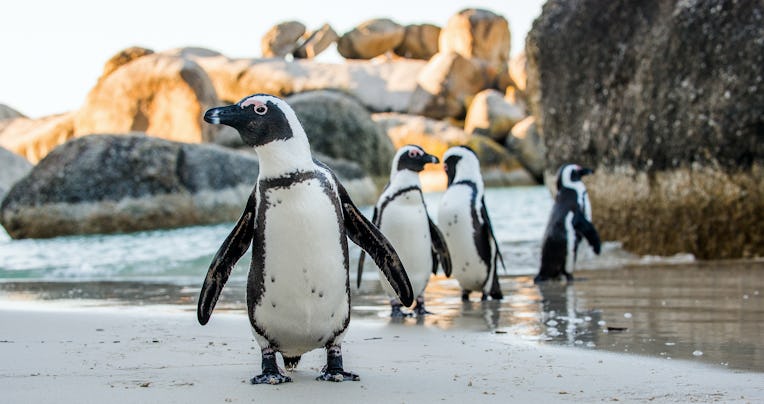Save the Bees Except for the Ones That Killed 63 Endangered Penguins
A tragic massacre near Cape Town shows “oppressed” bees are not that innocent

I like honey bees. I like when they are far away from me. I like the honey that they produce, which I enjoy with butter on a slice of toast from time to time. I like when people say things like “save the bees,” because I recognize that they play a role in pollination, as honey bee propaganda has taught me via a seemingly constant stream of documentaries for at least the past decade or so.
But I do not like honey bees when they attack penguins, which outrank bees in both cuteness and protected status. So you can imagine how distressing it was to hear that a swarm of Cape honey bees is suspected of killing 63 endangered African penguins near Cape Town, South Africa, last week, according to officials from South African National Parks and the South African Foundation for the Conservation of Coastal Birds.
The penguins, who were part of the tourist-friendly Boulders Beach colony, were found dead primarily in Simonstown. Officials said that all the penguins had multiple bee stings, including around their eyes, and no other external physical injuries. Many dead bees were also discovered at the scene of the crime, South African Parks shared on Facebook, having apparently died along with the penguins sometime between last Thursday afternoon and Friday morning.
Although Cape honey bees are also part of the ecosystem in the area, such an attack on penguins is considered very rare, David Roberts, a veterinarian for the Southern African Foundation for the Conservation of Coastal Birds, told AFP.
“Losing over 60 healthy and most likely breeding, adult African penguins is quite a blow for the Boulders colony,” the foundation wrote on Facebook. The colony, established in the 1980s, has an estimated population of between 2,000 and 3,000 penguins. With that number now shrunk by approximately 63, park rangers will have to monitor nests in the area to help rescue and hand-rear eggs and chicks that have lost one or more parents. The species is already endangered thanks to threats like climate change, habitat destruction, overfishing, oil spills, and other human activities. And now they have to watch their backs for bees, too? Buzz off!!!